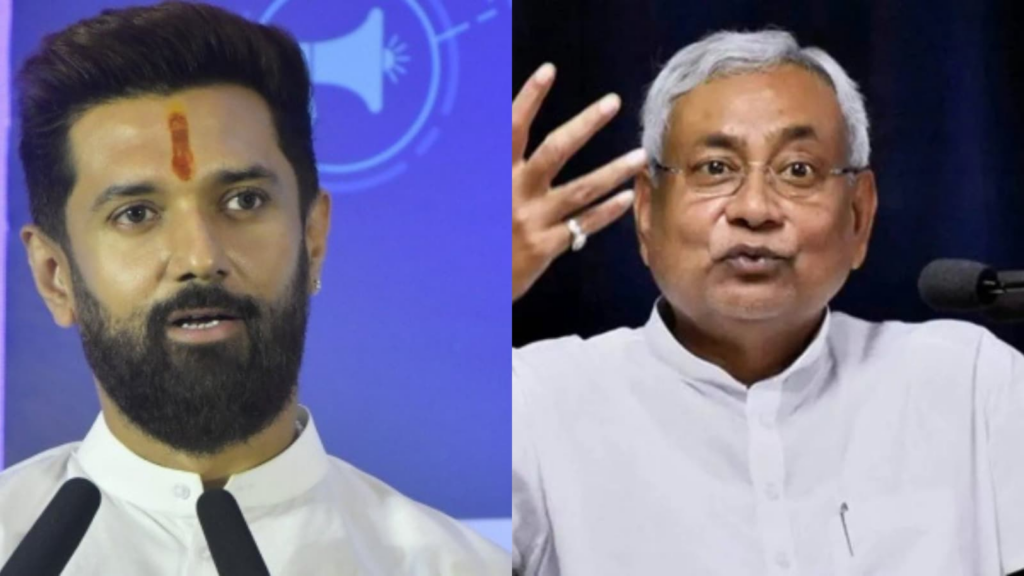The BJP’s NDA allies in Bihar have publicly backed the Election Commission’s (EC) Special Intensive Revision of electoral rolls in the poll-bound state in the face of Opposition criticism, but there is concern among some in the ruling coalition about the exercise.
Several leaders of the BJP, JD(U), and the Lok Janshakti Party (Ram Vilas) The Indian Express spoke to expressed doubts if the EC could complete the exercise in the short time it has on its hands without leaving out genuine voters. The revision drive began on June 25 and is set to conclude on July 25.
Pointing to the levels of literacy and poverty, and a lack of access to administrative remedies in the state, the leaders said many people, especially the poor and those from marginalised groups, might not have any of the 11 documents the EC has sought as proof of date and place of birth.
The leaders also emphasised that as inclusion in electoral rolls was not directly linked with government benefits, voters would not be motivated to go the extra mile and claimed that the responsibility to get them included would eventually fall on political parties.
“The voter will not be motivated enough to do the legwork or spend money to get the required documents. Ultimately, party workers will have to ensure that their vote bank retains the right to vote. All parties are already working on it,” said an LJP (RV) leader.
As per the EC’s directions, every eligible voter is required to submit an individual enumeration form. Those born after 1987 and added to the rolls after January 1, 2003 — the year of the last intensive revision — will have to additionally provide proof of their citizenship with documents, including a birth certificate, passport, caste certificate, or educational certificates.
The Opposition has labelled the drive, being carried out in a state with a historically poor record in registering births, a “conspiracy” to deprive the poor, Dalits, tribals, and those from other backward communities of voting rights.
The EC has set a cut-off date of July 1987 (as date of birth) for compulsory furnishing of proof of date and place of birth for inclusion in the rolls. Those born between 1987 and 2007 will be 18 years old or more and will need to furnish proof unless included in the rolls during the 2003 revision.
However, the Registrar General of India data shows that even in 2000, only 1.19 lakh births were registered in the state, a mere 3.7% of the estimated births in Bihar that year, while the national average was 56%.
Bihar’s birth registration rate has progressively increased, but even in 2007— those born then will be 18 years old in 2025— only 7.13 lakh births were registered. This was one-fourth of the estimated births in Bihar that year. The RGI has no data for Bihar before 2000.
A comparison with Census data, too, shows a wide gap. According to the official 2001 Census, the population of Bihar on March 1, 2001, was 8.3 crore. This increased to 10.4 crore in the 2011 Census, an increase of 2.11 crore. However, the total registration of births in this period in Bihar stood at only 73.91 lakh.
“This could create a lot of problems for the poor. While people have documents that have government benefits linked to them, a large number may not have documents such as birth certificates or caste certificates. This drive could most severely impact the extremely backward castes since they are poor and illiterate but not as protected as Dalits or as politically powerful as the backward castes such as Yadavs,” said a JD(U) leader.
Another senior JD(U) leader said the party had already hit the ground, with booth-level agents being deployed in all 243 constituencies and weekly reviews of the party’s booth committees being undertaken with social compositions of the areas in mind.
“Both for the coming Assembly elections and the EC’s drive, this exercise is necessary. All parties are running against time to make sure their Booth-Level Agents (BLAs) are in place to help people get the required documents. There may be legal challenges to the drive ahead as well,” the leader said.
A BJP leader expressed concern about genuine voters getting left out despite the best efforts of political parties. “Even the poor among the upper castes may face difficulties. Things will be clear only after the revised rolls are out.”
Another senior BJP leader from Bihar, however, said the EC’s decision was based on reports that show the state has a large number of bogus voters, including “infiltrators”, on the rolls. “The EC has assured us that no genuine voter will be left out,” the leader said, pointing out that the poll panel’s order was clear that the final decision on who is a genuine voter rests with the Electoral Registration Officer. This would be decided based on field enquiry and documents, the BJP functionary added.
JD(U) national spokesperson Rajiv Ranjan Prasad denied the party had any apprehension about the exercise. “Five crore voters will have to provide no documents … Even people belonging to the Extremely Backward Classes (EBCs) get caste certificates. So, it is not so difficult … The aim of the exercise is to ensure no genuine voter is left out but bogus ones are weeded out,” he said.
LJP (RV) national vice-president A K Bajpai echoed Singh’s views. “All doubts being cast on the process are pre-emptive. If the process is not happening fairly, you can raise an issue. Our only focus is that the drive must be carried out with accuracy. After all, doubtful voters have to be identified. Even after this, if a few genuine voters are left out, we will ensure corrections are made,” he said.

